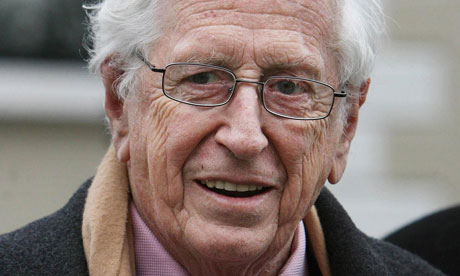FitzGerald served two terms in office as taoiseach and under his leadership he co-signed the Anglo-Irish agreement with Thatcher

Garret FitzGerald has died at the age of 85.
Garret FitzGerald, the man credited with liberalising Ireland and helping start the peace process, has died aged 85. FitzGerald had been Irish prime minister twice during the 1980s. In 1985, during his second term, he co-signed the Anglo-Irish agreement with Margaret Thatcher. One of his protegés, the former minister Ivan Yeats, said there would not have been a visit by the Queen to Ireland this week without the accord and FitzGerald's contribution to improving Anglo-Irish relations. In a statement, the former taoiseach's family paid tribute to his medical staff in Dublin. "They would like to thank the doctors, nurses and staff at the Mater private hospital for the wonderful care he received during his illness. "He was a much loved and adored father, grandfather and great-grandfather and will be sadly missed by his extended family. Details of funeral arrangements will be announced later." FitzGerald was born in 1926, and both of his parents had been involved in Sinn Féin during the Irish war of independence. His father, Desmond, later served as minister for external affairs in Ireland's first government. In later life, FitzGerald often spoke of his desire to bring together the southern Catholic tradition of his father with the northern Protestantism of his mother, Mabel. He met his wife Joan at University College Dublin. The couple had three children. FitzGerald worked for Irish airline Aer Lingus before becoming an economic consultant and academic, and then a politician. He was elected to the Seanad (senate) in 1965 and the Dáil in 1969, where he quickly made his mark, particularly during debates on the arms crisis. He became taoiseach during the 1980s when Ireland was mired in recession but his most lasting achievement was to persuade Thatcher to establish the Anglo-Irish agreement in 1985. It gave Dublin some say over Northern Irish affairs and was meant to bolster northern nationalist confidence in constitutional politics. The former Fine Gael leader also launched a social reform programme in Ireland aimed at secularising the Republic to make it more attractive to Protestants in the north. FitzGerald had to face stern opposition from the Catholic church on reforms concerning divorce, contraception and abortion.
No comments:
Post a Comment